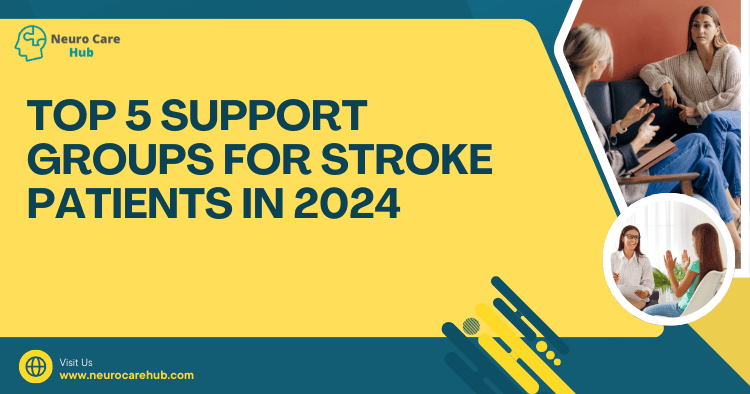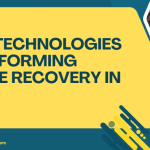Introduction
A stroke can be a life-altering event, impacting not only the individual who experiences it but also their families and caregivers. The emotional, psychological, and physical challenges that arise can be overwhelming. Fortunately, support groups offer a lifeline, providing community, understanding, and shared experiences. In 2024, several organizations have emerged as leaders in supporting stroke patients and their loved ones. Let’s explore the top five support groups that can help you navigate the journey of recovery.
“Finding support is crucial; it helps you realize you are not alone in your journey.”
1. American Stroke Association Support Network
The American Stroke Association (ASA) is a recognized leader in stroke education and awareness. Their Support Network is a vibrant online community designed for stroke survivors and caregivers.
Key Features:
- Online Forums: Participants can share experiences, ask questions, and receive advice from others who have been in similar situations.
- Resource Hub: The ASA provides a wealth of information on recovery, rehabilitation, and emotional support.
- Webinars and Events: Regularly scheduled webinars offer insights from medical professionals about stroke recovery and management.
For more information, visit the American Stroke Association Support Network.
2. Stroke Survivors Support Group
This grassroots organization focuses on creating local groups that foster in-person connections. The Stroke Survivors Support Group emphasizes the importance of face-to-face interaction and community building.
Key Features:
- Local Meetings: Groups meet regularly, allowing members to share their stories and support one another in real-time.
- Resource Sharing: Members can share resources such as rehabilitation tips, medication management, and coping strategies.
- Family Involvement: The group encourages family participation, recognizing the vital role loved ones play in recovery.
To find a local group, check out their website at Stroke Survivors Support Group.
“In-person connections often provide a level of support that online groups cannot.”
3. Young Stroke Survivors
Young stroke survivors often face unique challenges that differ from older patients. The Young Stroke Survivors group is dedicated to supporting individuals under 50 who have experienced a stroke.
Key Features:
- Age-Specific Resources: Tailored materials and discussions that resonate with younger survivors.
- Social Events: Regular meet-ups and social activities help members connect outside of the support group setting.
- Advocacy: The group actively advocates for awareness about strokes in younger populations and seeks to challenge misconceptions.
For more information, visit Young Stroke Survivors.
4. The Stroke Network
The Stroke Network is an online platform that connects stroke survivors and caregivers around the globe. Their mission is to provide support, education, and advocacy.
Key Features:
- Online Community: A rich forum where users can engage in discussions, ask questions, and share recovery stories.
- Resource Library: Access a variety of articles, videos, and tools related to stroke recovery and rehabilitation.
- Peer Mentoring: The network offers a mentoring program that pairs new stroke survivors with experienced mentors who can provide guidance and support.
To explore more, visit The Stroke Network.
“Connecting with others who understand your experience can be incredibly validating.”
5. National Stroke Association
The National Stroke Association is a comprehensive resource for stroke education, prevention, and support. Their programs focus on empowering stroke survivors and their families.
Key Features:
- Educational Resources: Information on recognizing stroke symptoms, recovery processes, and lifestyle changes post-stroke.
- Support Groups: Both in-person and virtual groups to meet a variety of needs.
- Advocacy and Awareness: The organization works to promote awareness about stroke prevention and recovery.
Learn more at the National Stroke Association.
Conclusion
Support groups play a crucial role in the recovery journey for stroke patients. They foster a sense of belonging and provide invaluable resources and connections. Whether you’re a stroke survivor or a caregiver, these top five support groups offer various platforms to find community and support. Don’t hesitate to reach out and explore these valuable resources!
“Remember, seeking help is a sign of strength, not weakness.”
FAQs
1. How do I find a support group for stroke survivors near me?
You can start by visiting the websites of the support groups mentioned above. Many offer local chapters or can direct you to nearby options.
2. Are support groups only for stroke survivors?
No! Many support groups welcome family members and caregivers, recognizing their essential role in the recovery process.
3. Do I need to pay to join a support group?
Most support groups are free. However, some may offer premium services or events for a fee. Always check before joining.
4. How often do support groups meet?
Meeting frequency varies by group. Some may meet weekly, while others might meet monthly or quarterly.
5. Can I participate in a support group online?
Yes! Many of the groups mentioned offer online forums and virtual meetings, making it easier for individuals to connect regardless of location.
For more information on stroke recovery and support, consider reaching out to healthcare providers or local hospitals, as they often have resources and connections to support groups. You can also explore the importance of neuro care and how it can aid in recovery by visiting the article on Top 5 Reasons Neuro Care is Essential in Modern Medicine. Remember, you are not alone in this journey!






